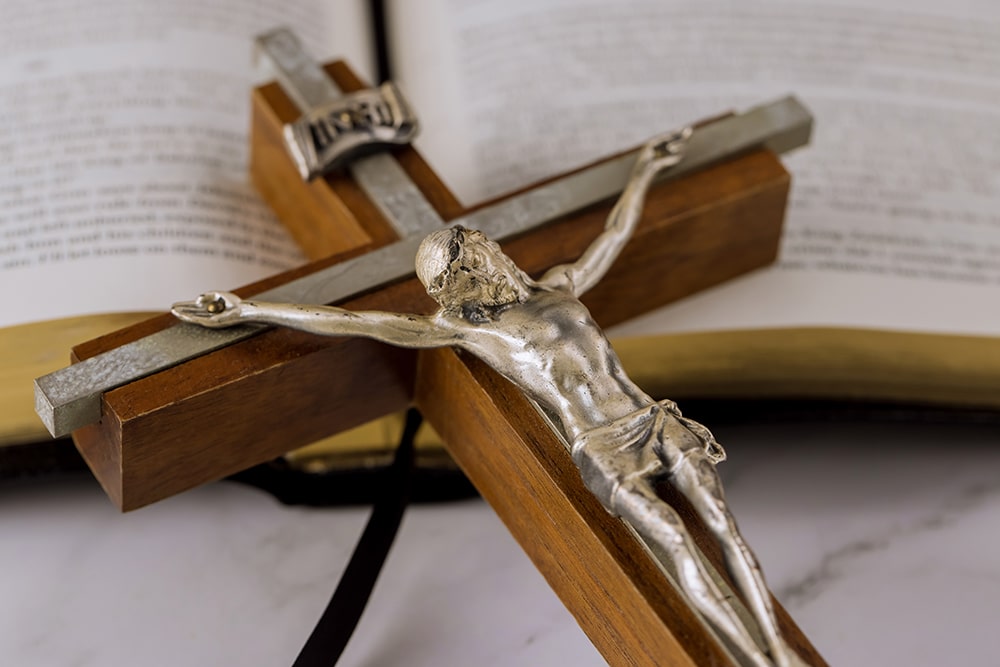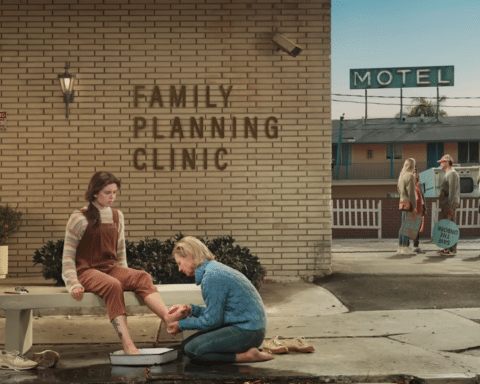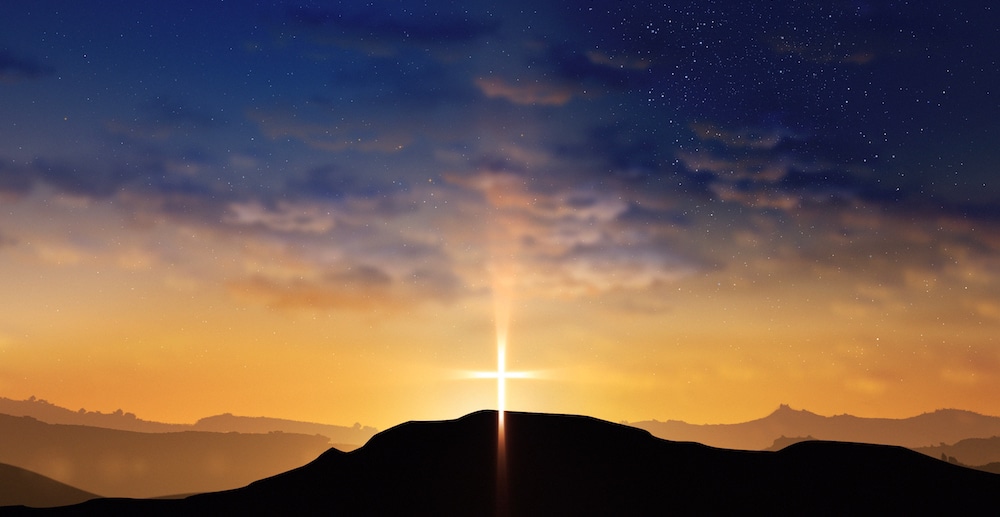
— Kevin Fellman, via email
Answer: In a discussion of the existence of other proposed ways to God, we must begin with the words of Christ himself who said, “I am the way and the truth and the life. No one comes to the Father except through me (Jn 14:6). The early Church also declared: “There is no salvation through anyone else, nor is there any other name under heaven given to the human race by which we are to be saved” (Acts 4:12). In humility, this must always be our starting point. It is not meant as a triumphalist declaration but must be accepted by us and proclaimed as Jesus himself and his apostles clearly taught. Skirting such texts or declaring them as remnants from a less “enlightened” time is a form of pride and thwarts Christ’s will that all be one in him (cf. Jn 17:21).
It is this vision that must always animate the Church and empower her in zeal and humility to proclaim the one truth that sets us free. To say that there are different truths or ways to God is a logical fallacy and a form of relativism. Hence, the teachings or religious movements that contradict Christ are wrong, and we cannot but say otherwise.
The Second Vatican Council said of the Church: “This is the one Church of Christ which in the Creed is professed as one, holy, catholic and apostolic, which our Savior, after His Resurrection, commissioned … for all ages as ‘the pillar and mainstay of the truth.’ This Church … subsists in the Catholic Church … which is governed by the successor of Peter and by the bishops in communion with him. Although many elements of sanctification and of truth are found outside of its visible structure, these elements, as gifts belonging to the Church of Christ, are forces impelling toward catholic unity” (Lumen Gentium, No. 8).
As you note, there are, however, some who sincerely believe we are wrong or misguided. While these claims cannot be right, the Church acknowledges that elements of the truth helpful to salvation exist outside her visible confines. Yet these gifts still belong to the Church, which is the Body of Christ, and there is only one truth. The Church does not deny that salvation is possible outside of explicit membership. However, salvation without all the gifts Christ intends for us is more difficult.
Here again, the Second Vatican Council taught: “Nor is God far distant from those who in shadows and images seek the unknown God … Those also can attain to salvation who through no fault of their own do not know the Gospel of Christ or His Church, yet sincerely seek God and moved by grace strive by their deeds to do His will … Nor does Divine Providence deny the helps necessary for salvation to those who, without blame on their part, have not yet arrived at an explicit knowledge of God and with His grace strive to live a good life. Whatever good or truth is found amongst them is looked upon by the Church as a preparation for the Gospel.
“But very often men, deceived by the Evil One, have become vain in their reasonings and have exchanged the truth of God for a lie, serving the creature rather than the Creator. Or some there are who, living and dying in this world without God, are exposed to final despair. Wherefore to promote the glory of God and procure the salvation of all of these, and mindful of the command of the Lord, ‘Preach the Gospel to every creature,’ the Church fosters the missions with care and attention” (Lumen Gentium, 16).
Hence, we see that salvation is possible for those who sincerely seek God, but, as the council teaches and the Catechism reaffirms, salvation without the Scriptures, sacraments and the indwelling Holy Spirit, without the Magisterium of the Church and without being a member of the Body of Christ, is going to be more difficult. We are called to respect those from different religious traditions, but not in a way that denies that Christ Jesus is the only savior of humanity. This ought to inspire in us an evangelical zeal to bring everyone to explicit knowledge and faith in Jesus Christ.
Msgr. Charles Pope is the pastor of Holy Comforter-St. Cyprian in Washington, D.C., and writes for the Archdiocese of Washington, D.C. at blog.adw.org. Send questions to msgrpope@osv.com.





